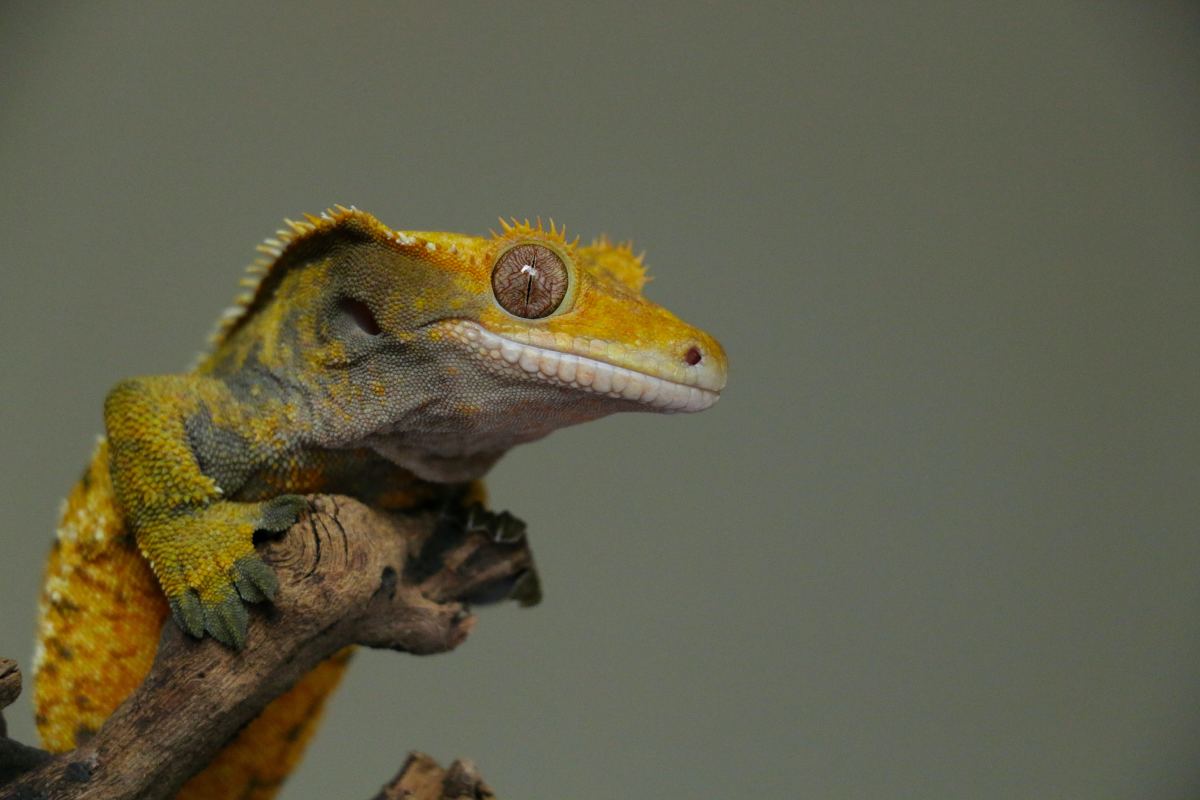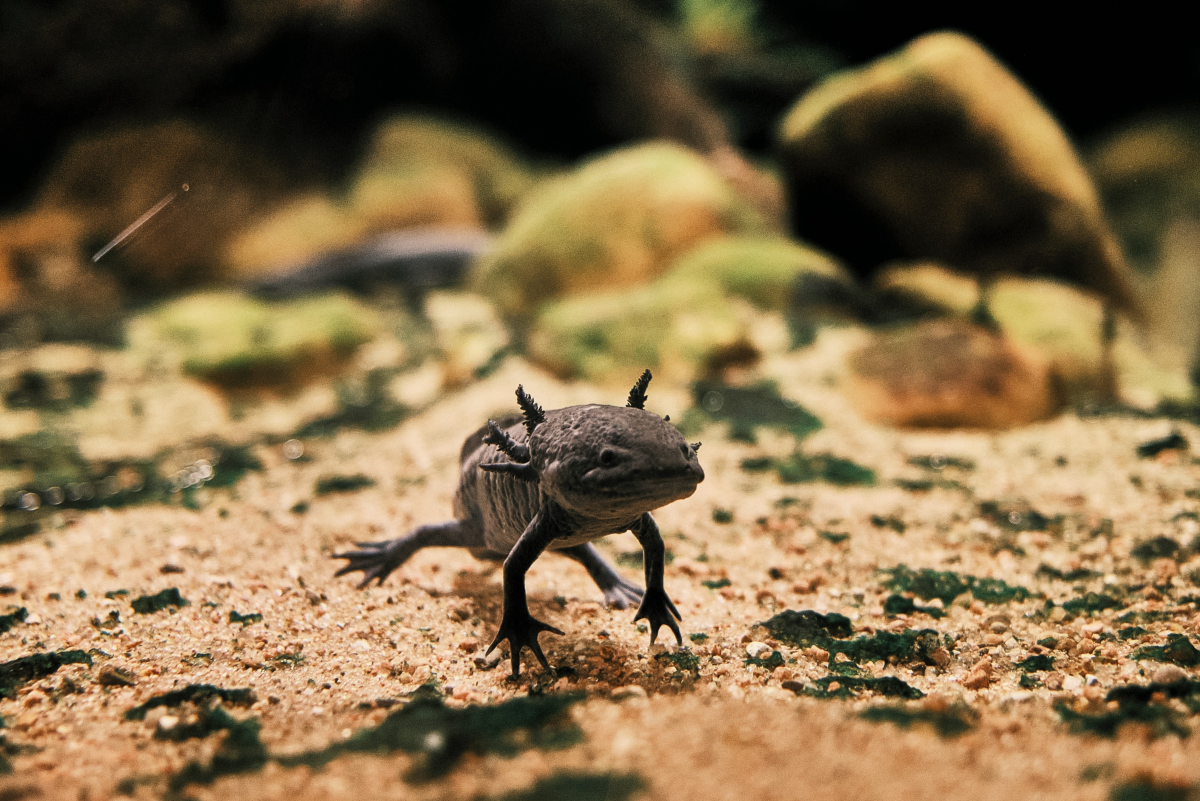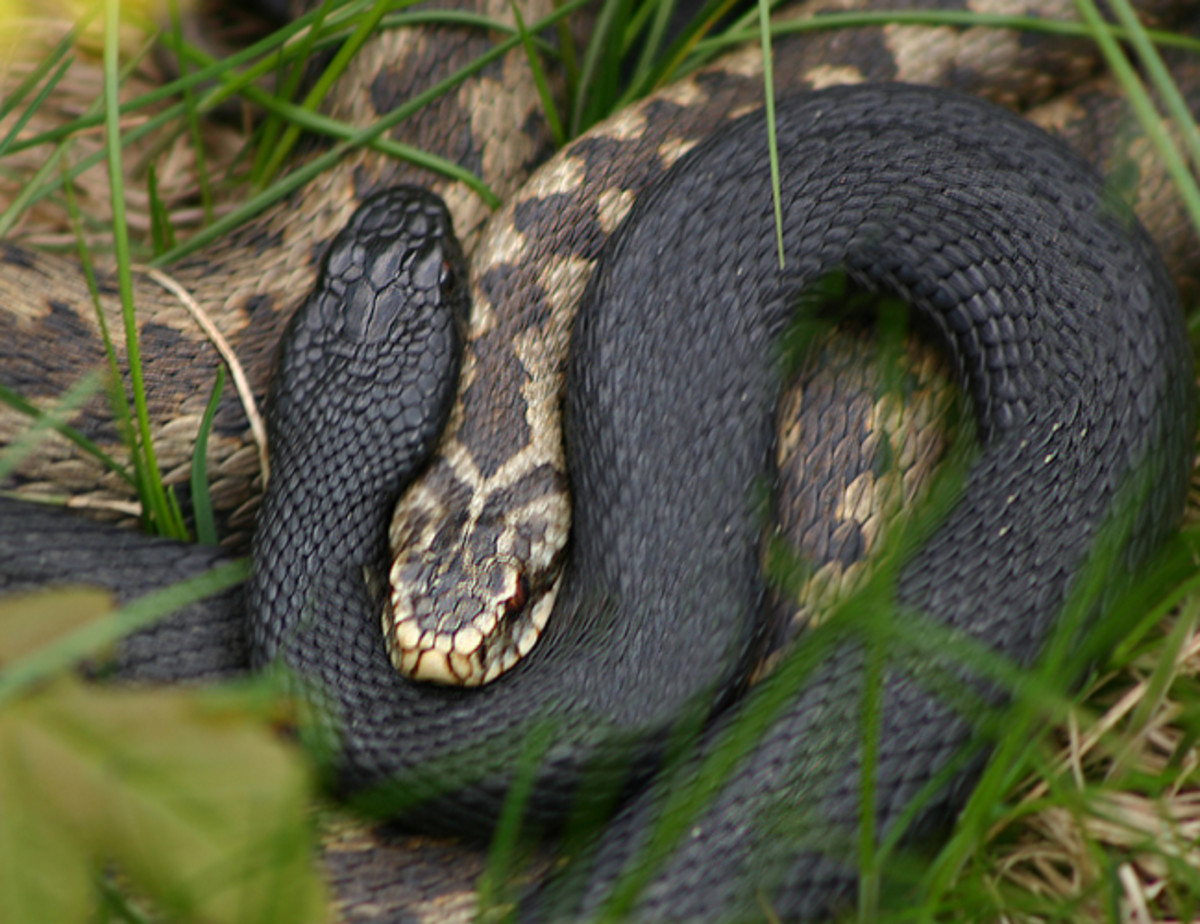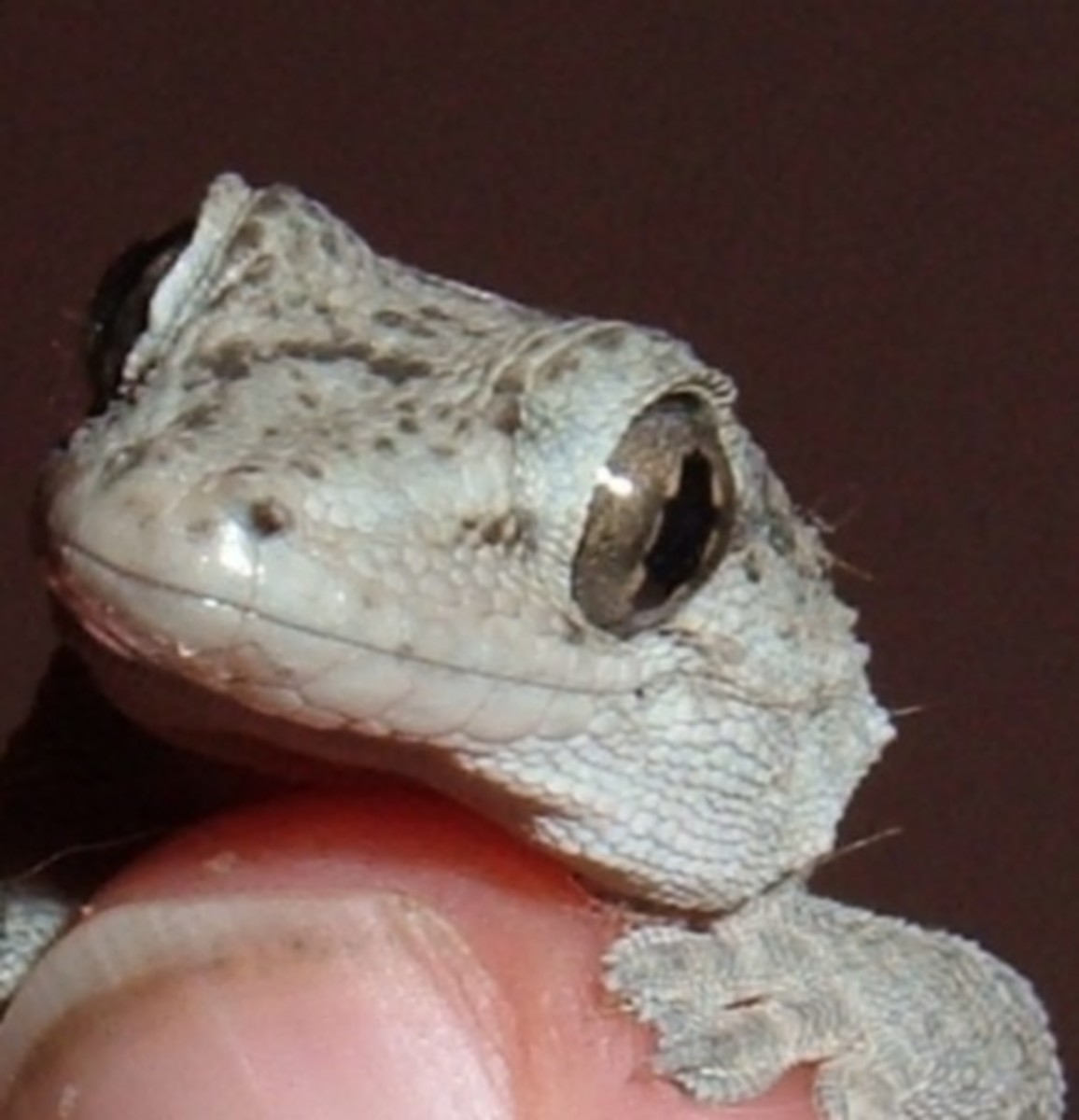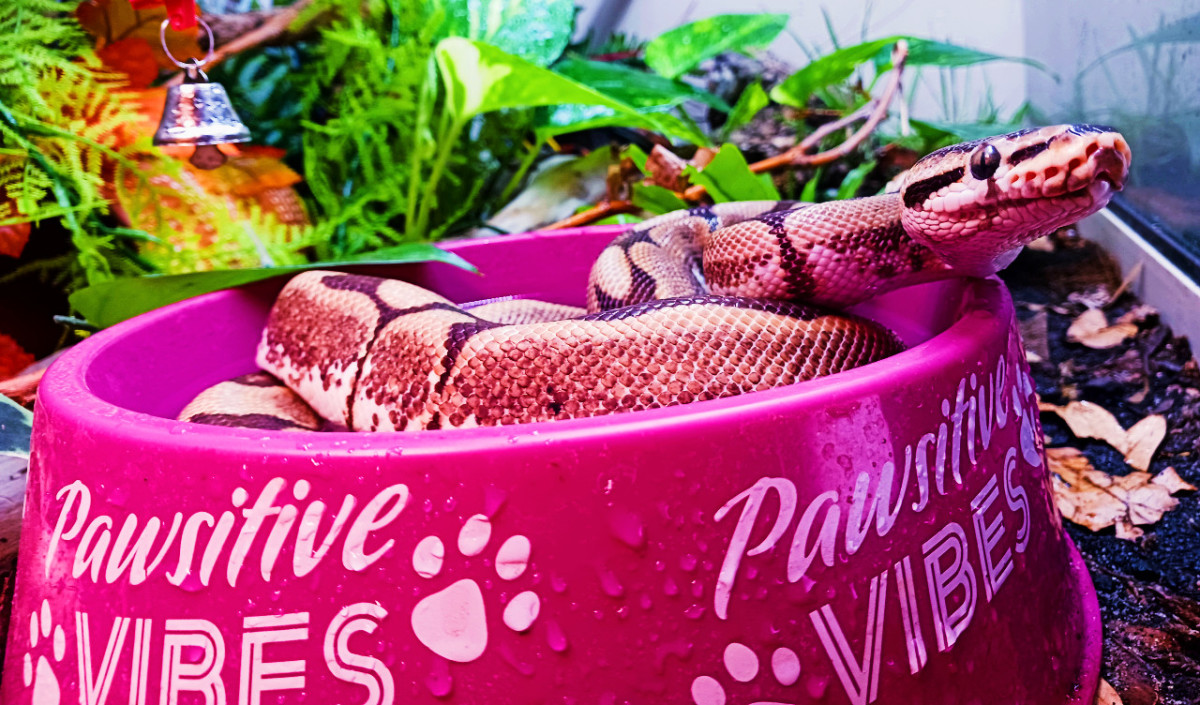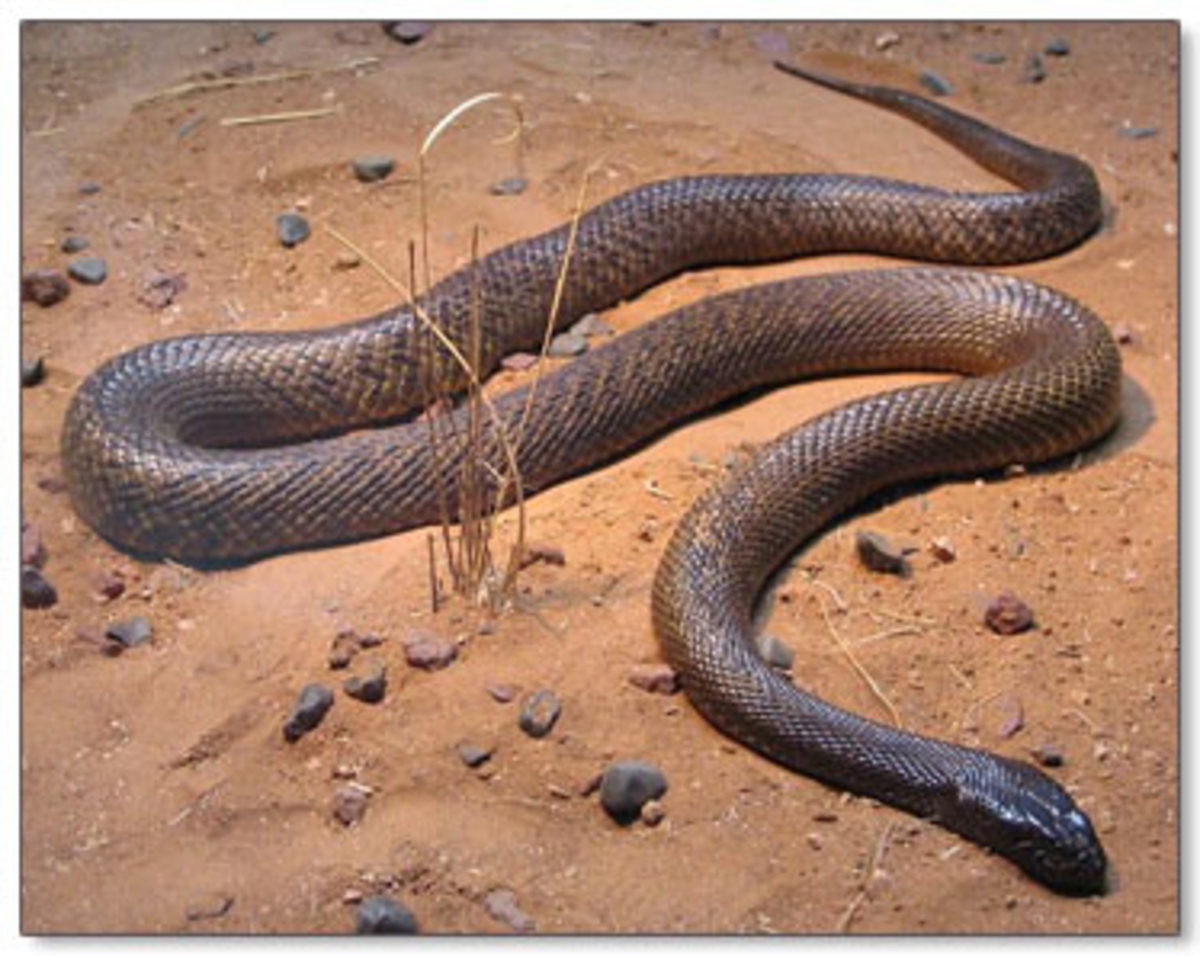Caring for Pet Reptiles

Pet Reptiles
If you're considering getting a pet reptile, you will want to consider which are the better beginner reptiles, as some are better for starters. With simpler husbandry requirements and more docile temperaments there are several reptiles that meet this criteria.
But, once you've decided to get a reptiles. You've done all your research and know everything about how to properly care for the species, you're ready to bring one home. But, where will you purchase your new pet reptiles? The most obvious choice is a pet store, but you really want to consider you options before going otu and purchasing one right away. Buy purchasing a "retail reptile" you risk parasites and other health concerns related to improper husbandry. You will want to speak with the employees, and make your decision on a case by case basis, as not all pet stores are bad, but you I wouldn't tell you that my Petsmart is wonderful with their reptiles, so it should be fine for you, as it may not be the case. Make sure to read this article before purchasing your reptile.
Patternless Leopard Gecko
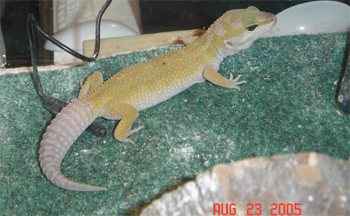
Pet Gecko Books
Caring for Pet Geckos
When it comes to geckos, they tend to make great pets, as most of them are very docile.
For beginner geckos, consider:
- Leopard geckos
- Crested geckos
- African fat tail geckos
- Gargoyle geckos
I find that geckos usually are the best introduction to caring for pet reptiles. Most of them are relatively small in size and even tempered.
When it comes to housing pet geckos, you will want to check the requirements for each individual species, as some geckos are arboreal (and require tall enclosures) and other geckos are terrestrial (an require longer enclosures).
You will, also, want to consider temperatures and humidity levels, as those that leopard geckos require will become fatal for a crested gecko.
Most geckos species are insectivores, but there are some geckos, such as crested geckos, gargoyle geckos, and other geckos in the Rhacodactylus species, eat mainly fruits in the wild, so in captivity you will want to purchase the "Crested Gecko Diet" meal replacement.
Bearded Dragon
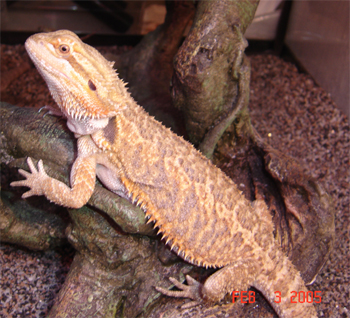
Pet Lizard Books
Caring for Pet Lizards
As lizards tend to be larger than geckos, the perfect species for you will vary. Many pet lizards reach large sizes such as the green iguana. Others may be temperaments such as the Chinese water dragon.
But, there are some pet lizards in the reptile market that make good beginner reptiles. Those include:
- Bearded dragons
- Mali Uromastyx
These reptiles are medium sized reptiles. Now, although, their husbandry and diet, are more complicated than most gecko and snake species, their docile temperaments make them great pets.
Being a larger pet, they will require a larger enclosure, but depending on the species, you may have to hand make an enclosure that will properly house the reptile.
As for diet, depending on the species or lizard it will vary greatly. Some lizards require insects and mice as a staple, whereas other lizards only require fruits and vegetables. But, some will require some mix of both, as they will be omnivorous species.
For safe fruits and vegetables, as well as a fairly complete listing of information for bearded dragon diet, you can click here.
Ball Python
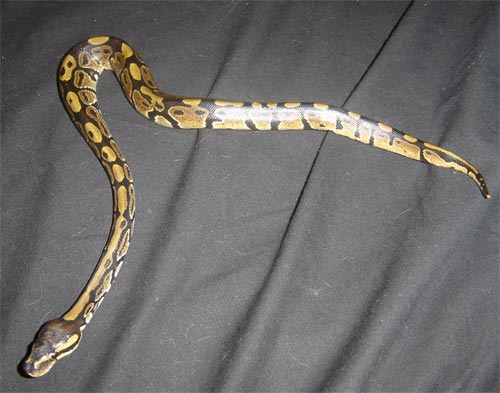
Pet Snake Books
Caring for Pet Snakes
Pet snakes actually make great pets... Well, not all of them, but depending on your experience, snakes make great pets.
For beginner snakes, you may want to consider:
- Ball pythons
- King snakes
- Milk snakes
- Corn snakes
- Rosy boas
- Sand boas
But, depending on the species of snake, how you care for it will vary. So for basic pet snake care information, click here.
The main things that you will want to consider is the size of the snake makes the size of the enclosure and the feeder it will need. Basically, the bigger the snake the bigger the enclosure. The bigger the snake the bigger the feeder it will need.
When it comes to feeding pet snakes, you will want to consider live or frozen feeders, so if you do not already know the pros and cons, you will want to check this out.- Feeding Frozen.
The biggest health concern with pet snakes will usually be mites, so to find out more about mites, click here.
Common Reptile Health Concerns
Reptiles, like any other pet suffer their own ailments, some are preventable others are hereditary.
Impaction, is preventable. It is probably one of the most common health concerns with reptiles. Reptiles who suffer impaction tend to be housed on a loose substrate. They may have improper heating, or fed prey items that are too large to properly digest. But, most commonly, it's caused by loose substrates, such as sand. So, that's why one should never house a reptile on sand, calci-sand, woodchips, dirt, or any other similar item. Consider reptile carpet, slate tiles, and paper towels as a substrate of choice for reptiles.
Metabolic bone disease can be either hereditary or preventable. Most commonly, it's preventable. With improper supplements and husbandry, reptiles can suffer deficiencies. And, this is a type of calcium deficiency. In diurnal reptiles, it can be the cause of lack of proper UV lighting in combination of supplements, but with more nocturnal reptiles, it's caused by the lack of proper supplements. (Not common with snakes.)
Parasites are very common amongst reptiles that you purchase at pet stores. Because parasites can be fatal, at the first sign, you will want to bring the reptile and a fecal sample to a reptile vet. Watch for lack of appetite and lethargy, as well as loss of weight. If you notice the the reptiles is neither eating or drinking, I'd speed up your appointment date with the vet.
Mites are more commonly seen with pet snakes, but it is not uncommon for other pet reptiles to aquire a case of mites. They are tricky to get rid of, so it may take a little patience on your part, if you realize that your reptile's enclosure is also housing mites.





